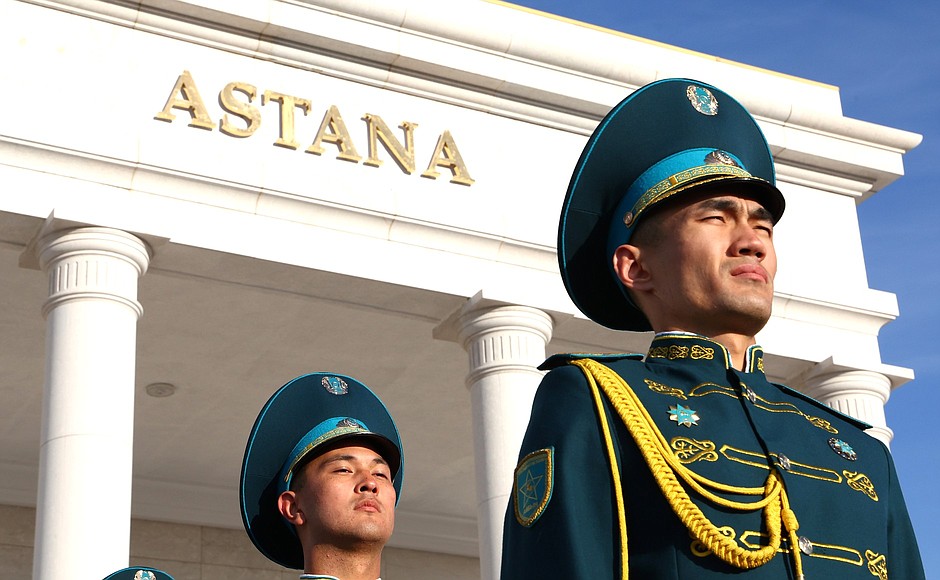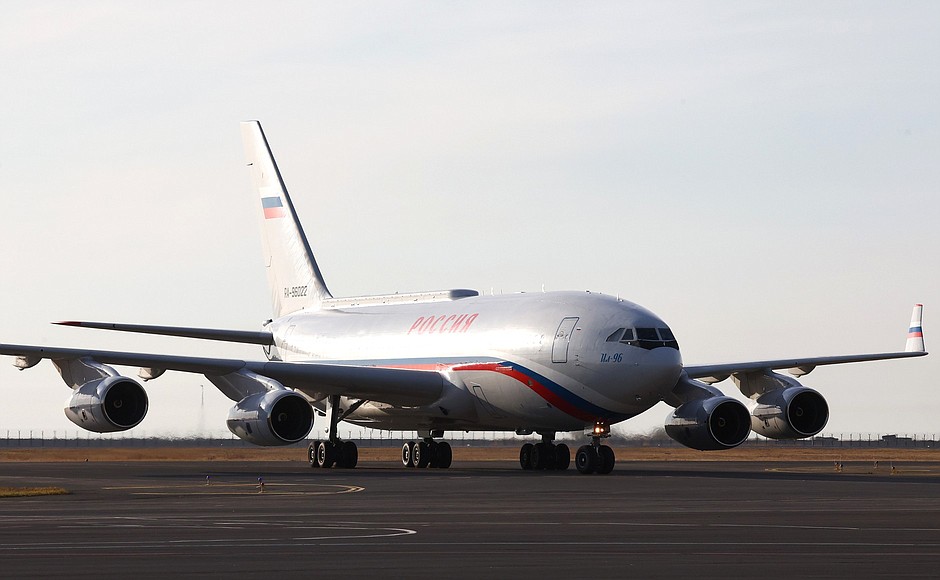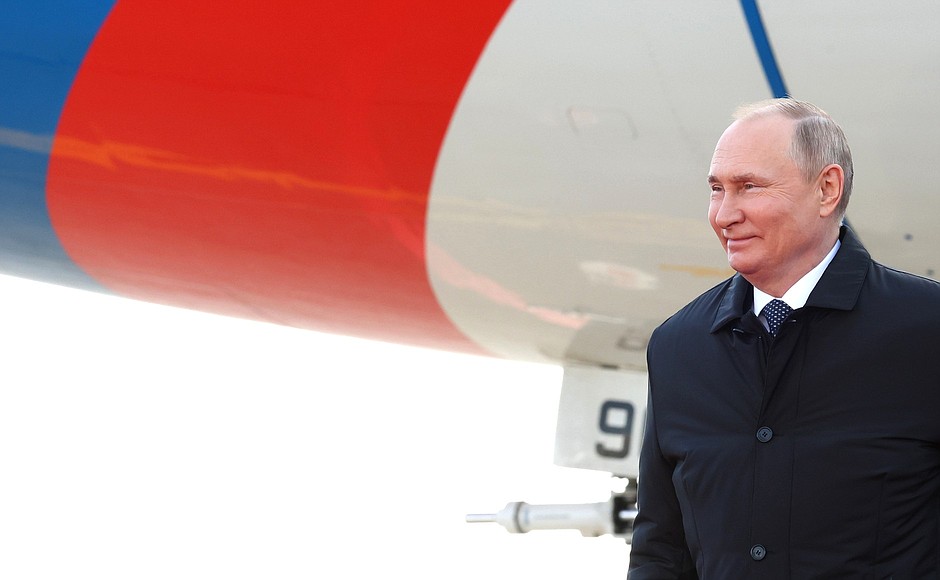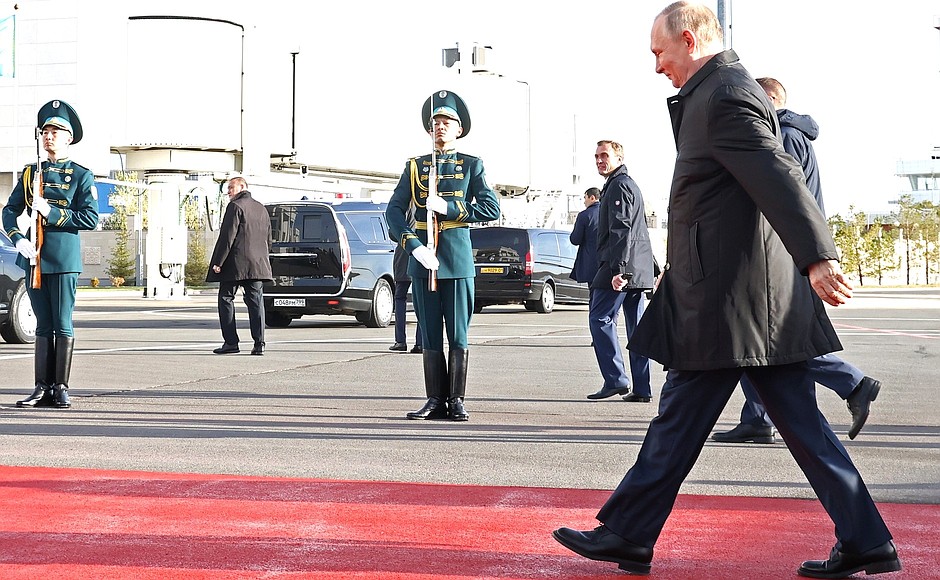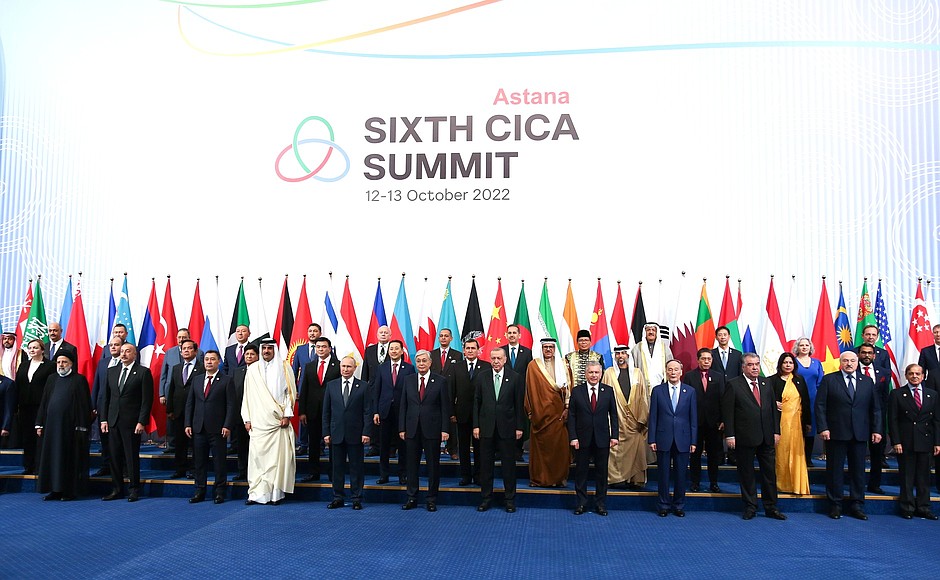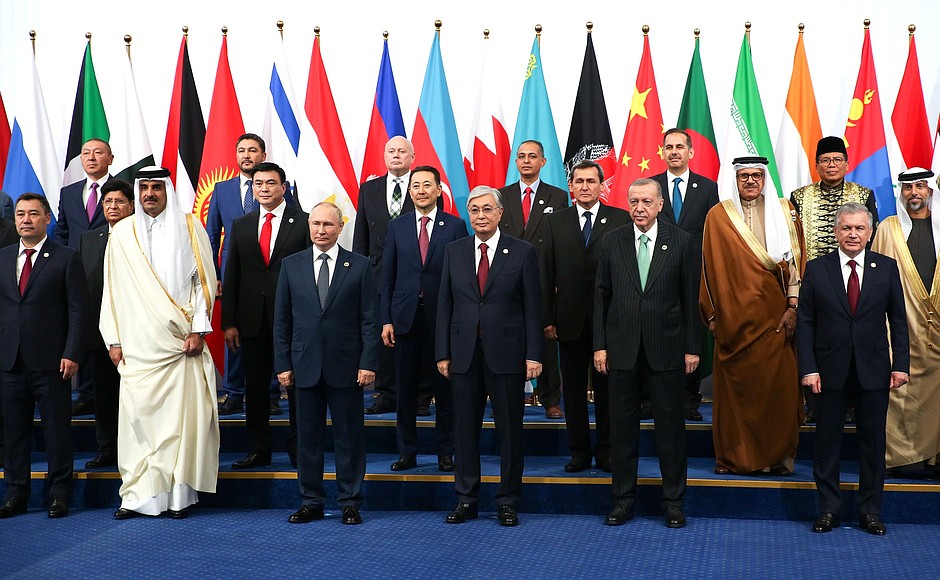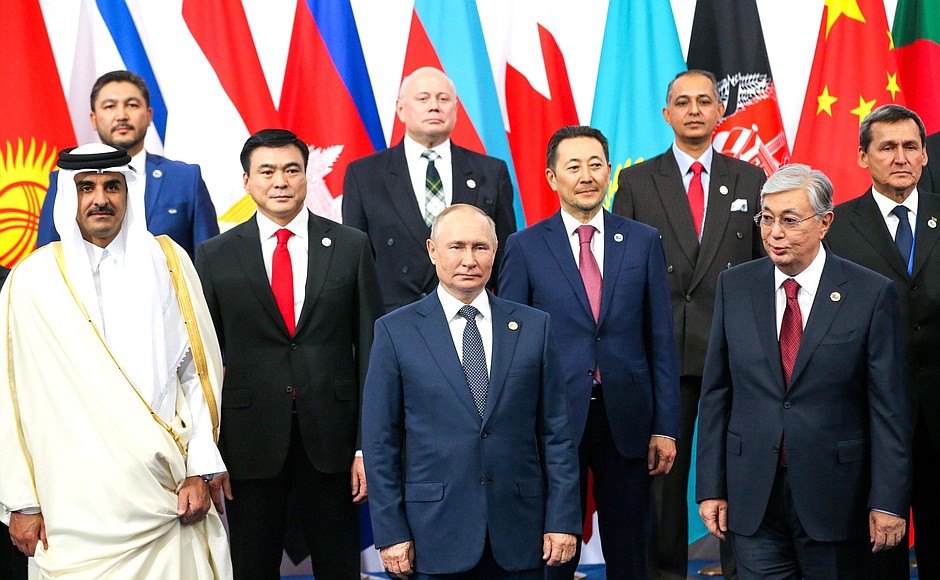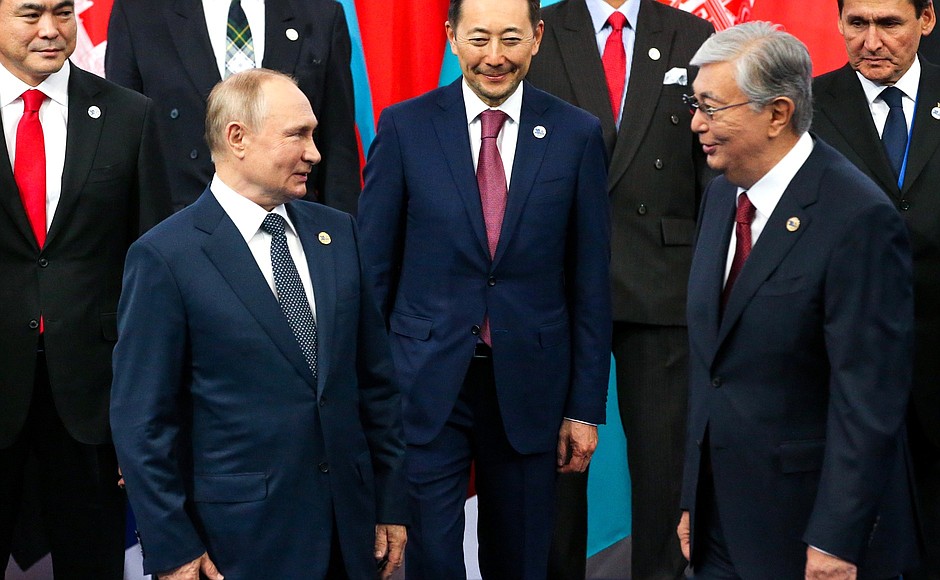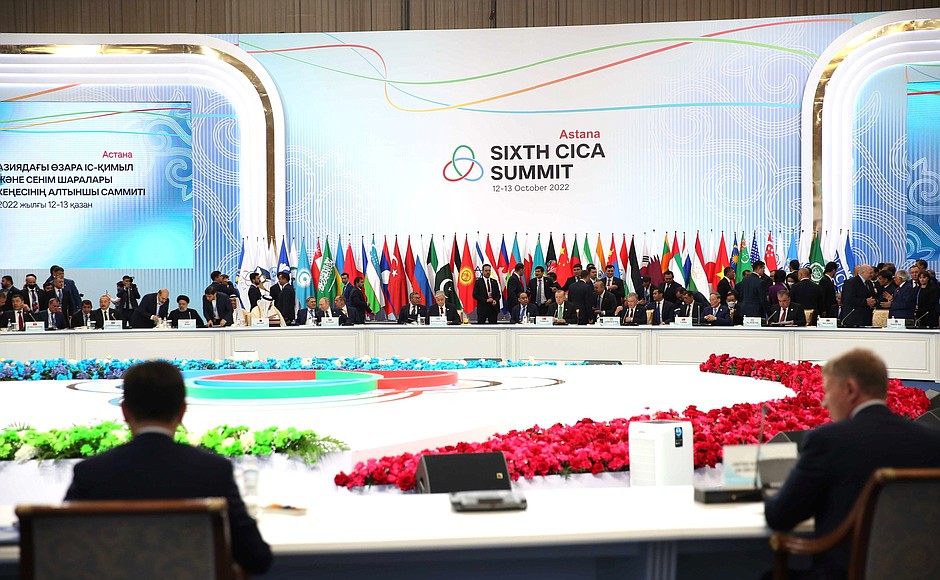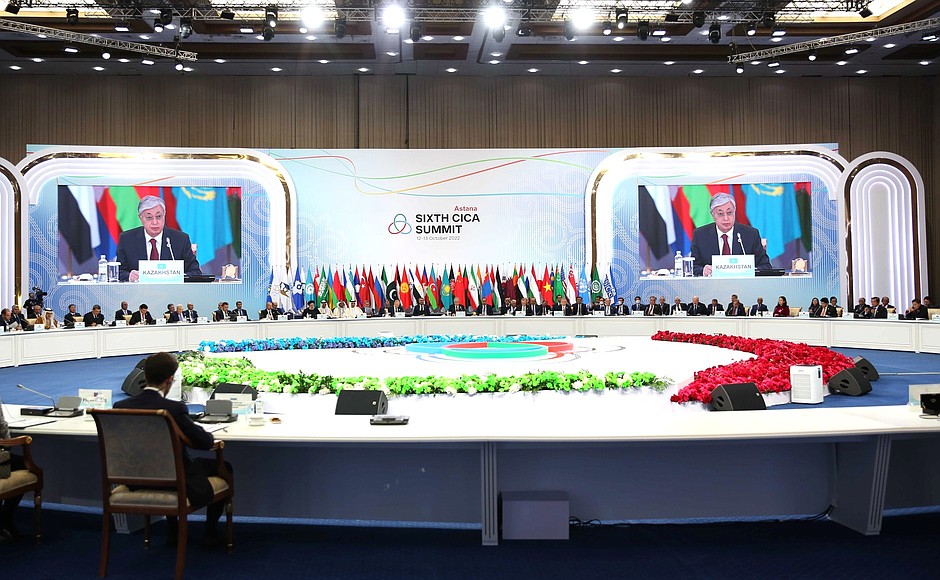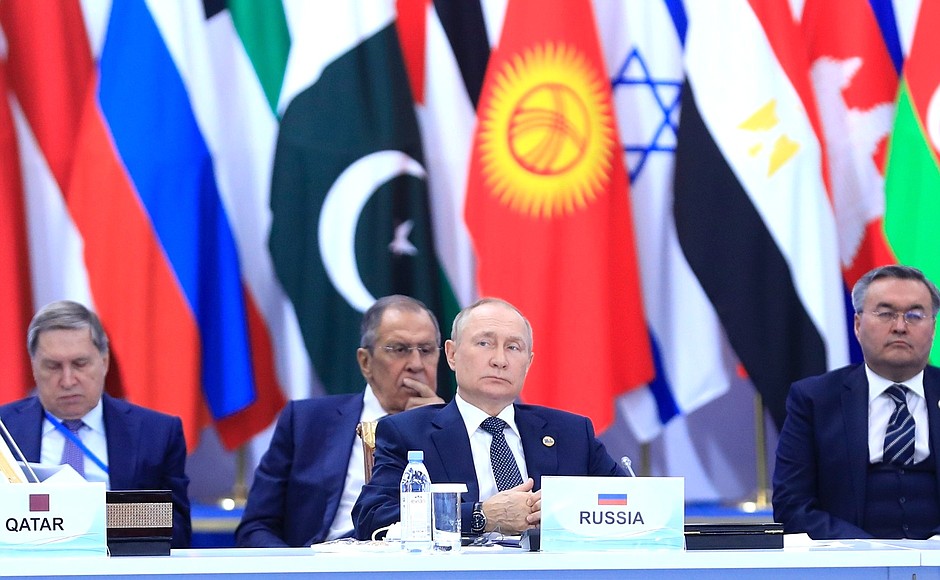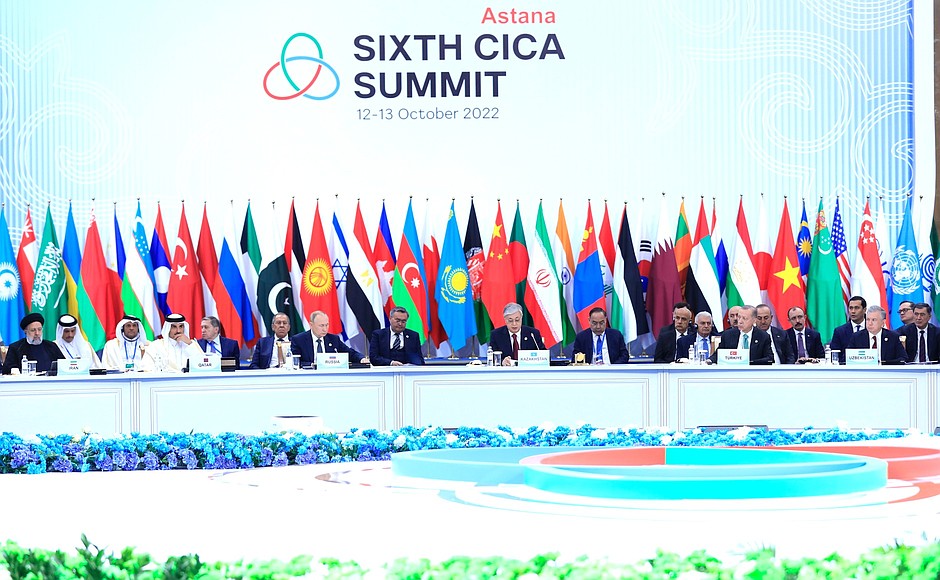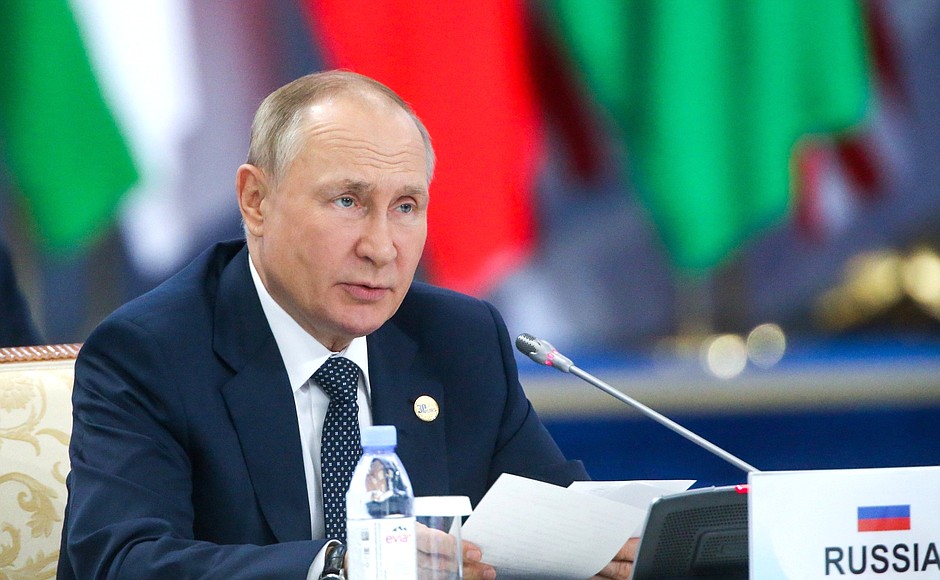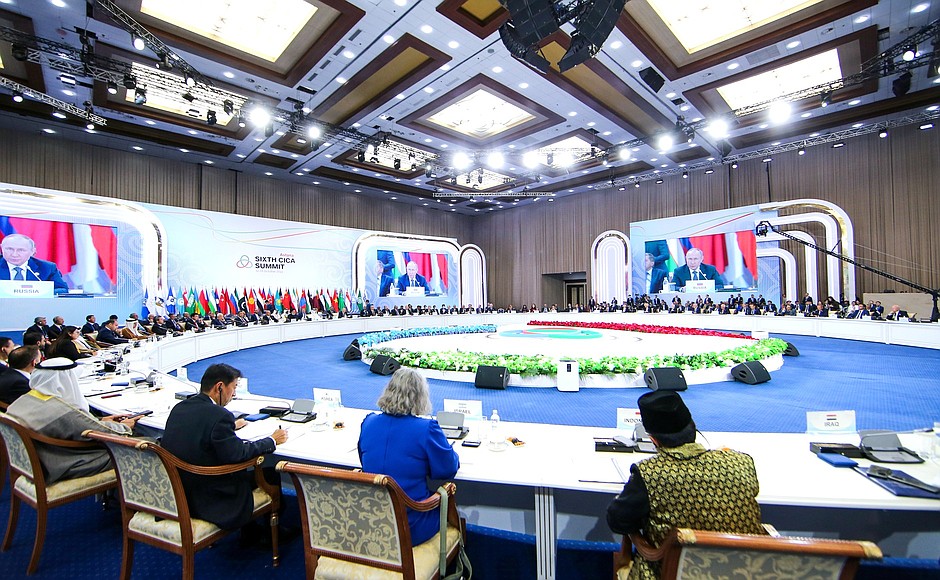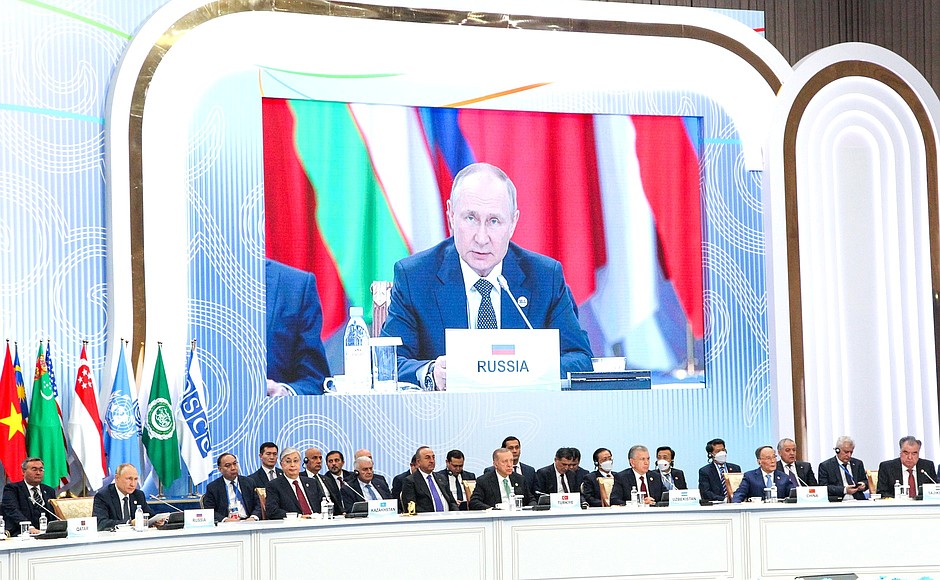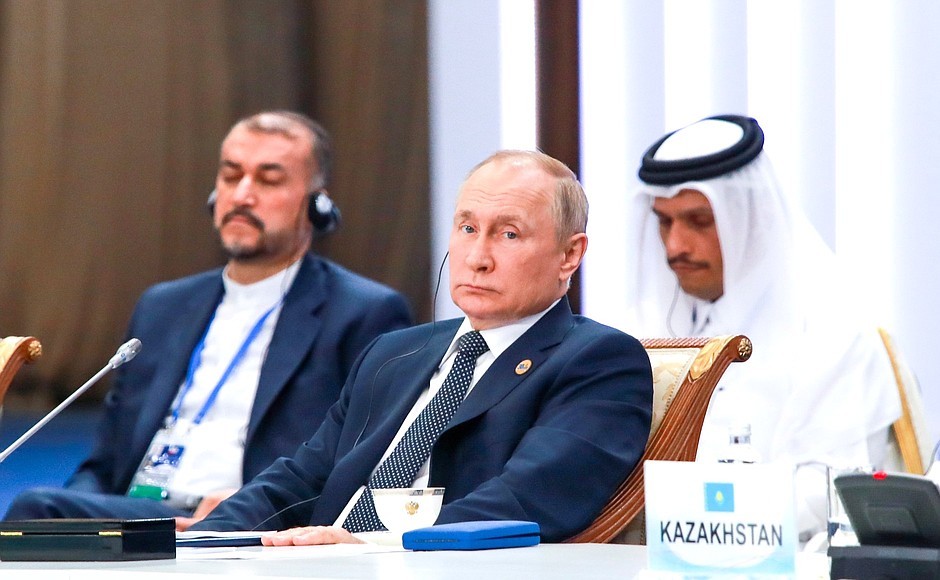Following the summit, the participants adopted Astana Statement on CICA Transformation and CICA Leaders’ Statement on Cooperation in the Field of Security of and in the Use of Information and Communication Technologies. The package of approved documents includes CICA Plan of Action on the Implementation of the United Nations Global Counter-Terrorism Strategy, as well as the summit’s decisions in granting the status of a CICA member state to Kuwait, on CICA presidency issues in 2022–2024 and on holding regular meetings of the Council of Heads of State and Government and the Council of Ministers. The CICA Fund Regulations have also been approved.
* * *
Speech by the President of Russia at the 6th CICA summit
President of Russia Vladimir Putin: Mr President [of Kazakhstan] Kassym-Jomart Tokayev,
Colleagues,
Over the past 30 years, the Conference on Interaction and Confidence-Building Measures in Asia has been discussing vital aspects of strengthening security and stability in the vast Asian region.
Today we have met against the backdrop of serious changes in global politics and economy. The world is becoming truly multipolar, and Asia, where new centres of power are growing, is playing a major, if not the key role in this.
Asian countries are drivers of global economic growth. Integration associations, such as the Shanghai Cooperation Organisation, the Association of Southeast Asian Nations and the Eurasian Economic Union, are working dynamically and effectively here.
See also
Russia is actively contributing to these processes. We are committed to the development and prosperity of Asia, to creating an open trade and investment cooperation space and broadening and deepening cooperation ties in various economic sectors towards this end.
I would like to remind you that Russia was a founding country of the CICA Business Council, which has held many successful conferences and seminars on the entire range of economic issues over the past years.
We are working hard together with other Asian counties to create a system of equal and indivisible security based on the universally recognised principles of international law and the UN Charter.
Our Conference and other regional associations are dealing with many pressing issues, notably the increased volatility of global prices of energy, food, fertilisers, raw materials and other essential goods, which is affecting the quality of life in industrialised and developing countries. Moreover, this is creating a real threat of hunger and large-scale social upheavals, especially in the poorest countries.
For its part, Russia is doing its best to supply crucial products to the countries that need them. We call for lifting the artificial and illegal obstacles, which are hindering the revitalisation of the normal operation of global supply chains, in order to be able to address pressing tasks in the field of food security.
Like many of our Asian partners, we believe that it is necessary to start a revision of the operating principles of the global financial system, which for decades allowed the self-proclaimed “golden billion,” which has been using capital and technology flows to its sole advantage, to largely live at others’ expense.
As a priority measure, we believe it is necessary to more actively use national currencies in mutual settlements. These measures would definitely help strengthen the financial sovereignty of our states, develop domestic capital markets and deepen regional economic integration.
It is extremely important to take further action, in cooperation with other regional forums and organisations, to resolve any crises and conflicts occurring in Asia, strengthen cooperation between our states on countering terrorism, expose and neutralise extremist groups, block their financial sources, fight drug trafficking and prevent the propaganda of radical ideas.
Unfortunately, Afghanistan remains one of the biggest security challenges for our region, as my colleagues have already said today.
After more than 20 years of US and NATO military presence and their failing policy, that country turned out to be unable to independently deal with the terrorist threat, as indicated by the endless series of violent terrorist attacks, including the blast outside the Russian Embassy in Kabul on September 5.
To normalise the situation in Afghanistan, naturally, we have to work together to help it with economic recovery. But first of all, we strongly insist on compensating for the damage caused to the Afghan people during the years of occupation and unblocking the unlawfully frozen Afghan funds.
In the context of a settlement in Afghanistan, it would be helpful to use the resources of the Shanghai Cooperation Organisation and its regional anti-terrorist body.
We also invite all Asian countries to engage in closer cooperation with the International Counter-Terrorist Data Bank, established at Russia's initiative.
I would like to point out that Russia and China have drafted a joint statement for this summit on cooperation in ICT security. We hope that the joint statement will be approved.
Finally, I would like to mention the importance of strengthening multilateral cooperation between the participating countries on social, cultural and humanitarian issues and in promoting the inter-civilisational dialogue and contacts between peoples.
In particular, volunteer movements are among those that require support. The acute stage of the Covid-19 pandemic that we have passed demonstrated the helpful role of volunteer and youth groups in supporting the population. Russia has accumulated extensive and useful experience in these matters and we are ready to share it with interested countries.
Overall, I would like to note with satisfaction that our joint work within this Conference on Mutual Interaction and Confidence Building is making progress. Russia will further develop multi-dimensional cooperation with all represented parties.
We support the initiatives of the Kazakh presidency.
Thank you.
